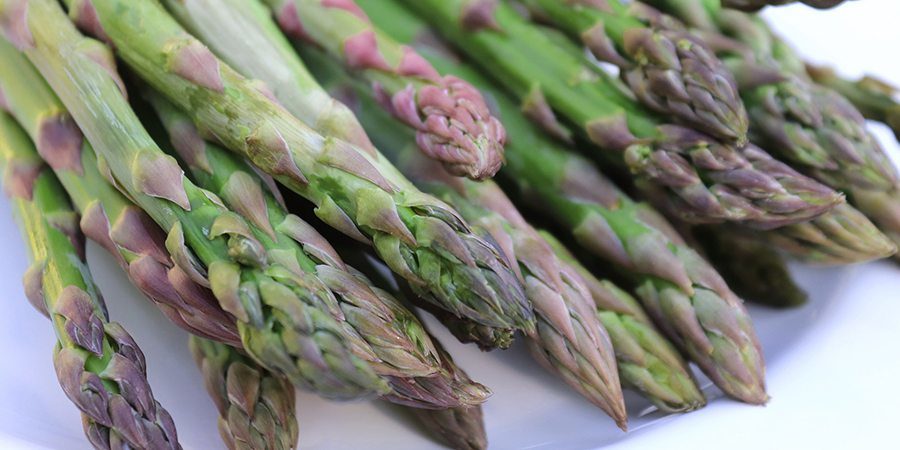
Home » Buy local to support state’s asparagus renaissance
Buy local to support state’s asparagus renaissance

May 17, 2018
By Marilou Shea
I’m still in mourning over the wrenching tale of what happened to our Washington asparagus industry.
In the late 1980s, asparagus was a thriving industry in the fresh and processed markets with 32,000 acres of the green spears shooting up from the fertile soils in Franklin, Walla Walla and Adams counties and the Yakima Valley.
Today, the processed market is miniscule and the fresh product market is a mere shadow at about 5,000 acres, or 14 percent of what it used to be.
 Marilou Shea,
Marilou Shea,
Food Truck Academy
Two primary market factors contributed to the demise of the industry: Peru’s duty-free access to our processed market during the 1990s, which caused the collapse of the local processing industry from 2001-05 and the North American Free Trade Agreement. Mexico’s lower cost of living, cheaper production costs and access to our fresh market hurt the U.S. fresh asparagus supply big time too.
Alan Schreiber, executive director at the Washington Asparagus Commission, said the industry is still reeling. How do multi-generational farmers sustain an industry desperate for a rebound when market forces beyond their control have it out-numbered and out-regulated?
One of those farmers is Jeff Muse, a third-generation asparagus farmer at Muse Family Farm Inc. He follows in the footsteps of both sets of grandparents and his parents, Doug and Cynthia Muse.
No doubt about it, his maternal grandparents, Jack and Delma Williams were key leaders in our community and progressive farmers: Ag Hall of Famers and Jack is a former Franklin County commissioner.
With 40 acres (and no mule), they were the first to establish a business relationship with Green Giant in 1966. His paternal grandparents, Rupert (Bill) and Flora Muse, put down roots in the Basin in 1970 with 20 acres of asparagus and secured an enviable contract with Green Giant’s chief competitor, Del Monte. Since then and under Doug and Jeff’s oversight, the family farm north of Pasco has grown to more than 150 acres of asparagus. The farm is a mid-large size producer primarily for the fresh market.
The Yakima Valley is home to about two-thirds of asparagus growers who produce one third of the state’s crop. The Columbia Basin is just the opposite with a third of the growers delivering two-thirds of the asparagus yield.
Many local growers sell to a distributor like Gourmet Trading Co. or to L&F Farms in north Pasco, which bought the popular Foster’s label. In 2017, they got about 87 cents per pound of asparagus. The distributor washes, packages and bundles the asparagus, then sells it for about $1.70 a pound. Some consumers lament that asparagus, despite its taste appeal and nutrient content, is so expensive. The reason? The intense labor required to deliver those plump spears to your table. It’s a delicate crop and one of the few crops still cut by hand — every single spear is cut by human laborers.
Jeff Muse thinks the industry is on the verge of a renaissance. Its future will depend on alternative sources of labor and/or advancements in harvest technology, he said. Today, many asparagus growers like Muse favor seed planting over the hand planting as it’s less time consuming and less expensive. That’s a start in the right direction to lower production costs for our growers.
Did you know that since 2015, during the height of our domestic season (April through June), Mexico has imported more than double the amount of asparagus into the U.S. than our growers can produce? That’s twice the size of our output but the spears are not nearly as pretty — they are slim, like pencil grass, Schreiber said.
I can understand friends who buy Mexico asparagus in November and December, but during our high season? Schreiber said the imported quality is clearly inferior to our local growers’ asparagus and yet the consumer can’t resist it because it’s cheaper.
Washington asparagus is better looking, better tasting, has unsurpassed quality and is safe. The next time you check out asparagus at the grocery store, look for and buy locally-grown Washington asparagus.
It’s a lot fresher than anything imported. And most importantly, it supports our local asparagus growers who deliver a mighty good product at a fair price. What’s not to love?
Food Love columnist Marilou Shea is adjunct faculty for Columbia Basin College’s hospitality program and Food Truck Academy, as well as the creator of Food Truck Fridays.
Local News
KEYWORDS may 2018





